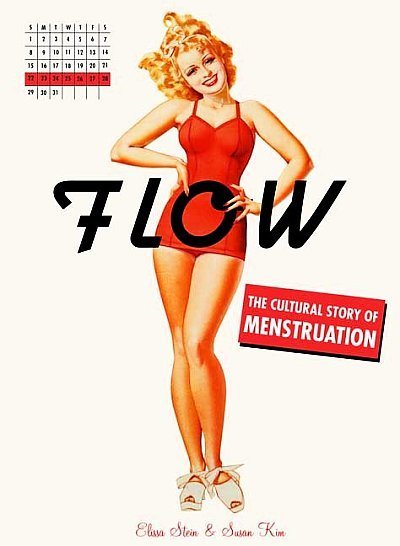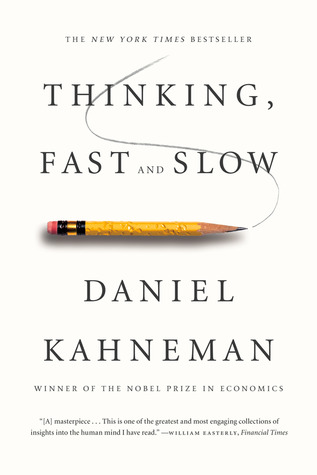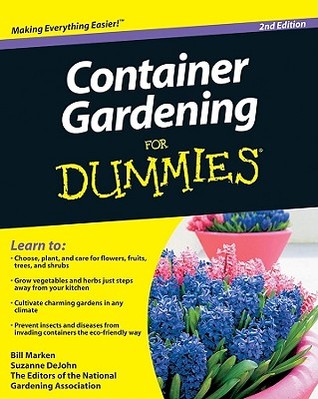Thinking, Fast and Slow by Daniel Kahneman:
Kahneman is a psychologist who also focuses on behavioral economics. He's been around for awhile and has done many studies on how our brains work.
Basically, we have two systems. One is fast and one is slow. The fast one is our intuitive side; it makes fast decisions since our slow system is too lazy. Our slow system is our rational and logical side but it takes more energy to work through it so many times we rely too heavily on our fast side and end up making blundering errors.
An excellent book on how our brains think. Him and Tversky pioneered these studies. Amazing.
NutureShock: New Thinking About Children by Po Bronson and Ashley Merryman:
The authors focus on some interesting studies that make us rethink our ideas about children and how we rear them as educators and parents.
The ones that stuck out to me were:
Chapter Two: The Lost Hour:
Kids need their sleep even more than adults do to keep those brains growing and learning properly. We need schools to start later. Yes it messes up working adults' schedules but it's serious stuff and needs to be done. Even just an hour seems to help significantly.
Chapter Three: Why White Parents Don't Talk About Race:
White parents don't know exactly what to say and are afraid they'll say the wrong thing but that ends up making kids not knowing what their parents think and make up their own biases. They don't go into any details about how to do that but emphasize that it needs to be done. It's helped me think about how to do that with my own son.
Chapter Seven: The Science of Teen Rebellion:
Studies showed that parents who set boundaries and were able to renegotiate with their kids about rules and boundaries were the ones with the least rebellious teens. So communicating and listening to their kids and allowing them to make a case for an exception for a curfew or whatever really influenced them to be more honest and to rebel less. Fascinating.
All of the chapters were fascinating but I chose my top three. I highly recommend this for anyone.
Container Gardening For Dummies by Bill Marken:
I have no yard since I live in a town home but I've been wanting to try my hand at planting a few flowers during the Spring and Winter months. So I picked this one up to help me!
It's a great one for beginners and I definitely fit that category. It's still a bit too chilly around here for me to pick up flowers to plant but I am prepared! I'm hoping only a couple of more weeks!!!
Showing posts with label psychology. Show all posts
Showing posts with label psychology. Show all posts
Saturday, March 29, 2014
Wednesday, January 29, 2014
Quiet: The Power of Introverts in a World That Can't Stop Talking by Susan Cain
 |
| Image Source |
She starts off with who are introverts, what does that mean, and who came up with this? We get a little background into some psychology history.
She then goes into why we live in such and extroverted culture and what that means. And how are basic assumptions like brainstorming and groupthink actually aren't effective. She gives us business example of where these ideals are failing and where the introvert ideals are succeeding.
The second part focuses on biology, our genes. Are we born this way? What can we do about it?
Most of what I've read (while not a ton) seems to agree that about 40-50% of our personality comes from our genes. But the biology examples and studies she threw out didn't convince me. Too many of the psychologists had a theory and then used the data to confirm said pet theory. Her psychologist was Kagan and he had some out there pseudoscience she was quoting...like he thought maybe men were attracted to fair eyes and fair skin and hair because that made the other person seem more trustworthy and honest...um yeah so the rest of the majority of the population are just evil shmucks, right? It was a weird thing to add and she never talked about it again and just kind of left it hanging there. Weird.
Then there's the loaded term of 'free will' that she uses. She didn't really define what she meant by it. Dualism? Soul? Philosophical free will? She could've used a more descriptive term.
The other thing about this section that bothered me was how much she threw extroverts under the bus. Introverts are more compassionate, better critical thinkers, less impulsive, basically why would anyone ever want to be an extrovert? This is her book and she is an introvert so it's a rah-rah book for all of us introverts. But I could still feel the empathetic pangs for those extroverts.
The third section focused on cultural ideal for extroversion or introversion. The stereotype is for Asians to be more introverted culturally, which is also true. She goes a bit into why and how the cultures clash once Asian-Americans and white Americans come together whether it's in high school or college.
This is one area where I think the extrovert ideal is a bit better when it comes to higher education. Once you defer to authority and don't ask questions or take a stand for another/possibly better idea you aren't innovative. Granted, the youth in more introverted cultures have memorized more and overall they are going to have better knowledge about how the world works and their place in it, but from an innovative perspective on overall who's going to be leading the new sciences and techs, it's going to be the loud mouthed extroverted cultures because they aren't going to just defer to their professors and the authority. Let's combine both somehow so we can ask questions and make mistakes and learn from those while still having the basic population know a lot about the basics of science and math. (off soapbox).
Part four focuses on how to put the masks on and off successfully as an introvert. And how to accommodate introverts when you are a business/employer that usually focuses on the extrovert ideal.
I liked Cain's self-help stories that illustrate this. How does an introvert/extrovert couple work it out? How do they compromise their opposite tendencies? How do you help your introverted child succeed in a school system that highly favors extroverted styles?
This was the self-help portion of the book. Questions to ask, points to ponder, other books and articles to read.
Cain does mention at the end why she uses such a dichotomous system to talk about this. She knows it's not just black and white, you either are an introvert or you're not. But culturally people know what it's supposed to mean. It's a way to talk about it and see where we lie and our loved ones, along the introvert/extrovert scale.
Overall, I think it's an important book, one that should be read by anyone.
*I read this for my Skeptic book club. And it was a part of my Nonfiction Reading Challenge.
Tuesday, October 8, 2013
Mini Book Reviews (Non-fiction Edition)
 |
| Image Source |
Fabulous book! Lots of history on how society has treated women and our menstruating ways. Both depressing and fascinating, but it never dwells too much. Lots of snarkiness and ways to make us think about how we view our bodies and what the future holds.
The Violinist's Thumb: And Other Lost Tales of Love, War, and Genius, as Written by Our Genetic Code by Sam Kean.
 |
| Image Source |
I read Sam Kean's earlier book on the periodic table. This one was just as fabulous. He focuses on our genetic code and he teaches with stories and facts. Can't wait to read his next book!
 |
| Image Source |
Fascinating look on how we can engage with our lives, no matter what our daily lives look like. Tips on how to find flow activities and find meaning in what we do.
Labels:
2013,
2013 book review,
biology,
feminism,
history,
mini book reviews,
nonfiction,
psychology,
science
Subscribe to:
Posts (Atom)



